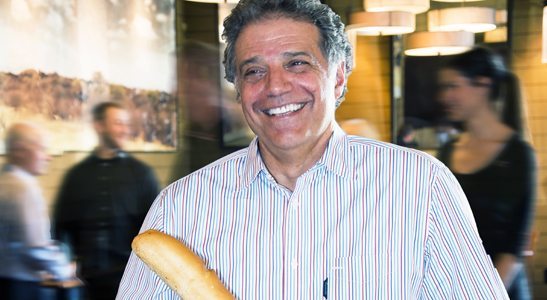What was your first job?
Delivering bread on my uncle’s bread delivery route at the age of 11. I worked every Saturday from 8 a.m. – 6 p.m. for two years. When I became a teenager, it just didn’t seem like a cool job to be talking to your friends about, so I moved on to work in a fast-food restaurant called Spaghetti Bowl. Instead of serving buckets of chicken and fries, we served buckets of spaghetti and meatballs. My job was to make 500 pounds of meatballs every Saturday. It took me several months to stop longing for delivering bread.
Do you remember how much you earned at that first job?
I think my uncle paid me $5 a day and I also got tips from his customers. He had over 100 stops, so I made about $25 dollars in tips, which was a lot of money as an 11 year old.
What did you learn from your first job that still impacts you today?
Consistency. Folks expected to have their delivery occur at the same time every day and they would get quite upset if their delivery was late. Oddly enough, the consistency of time mattered almost as much as the quality of bread that was being delivered. You have to deliver on the promises you make to your guests and your team consistently or they start looking elsewhere.
You started your career as an attorney. What made you decide to evolve into the restaurant industry?
I have always worked in restaurants. My first bartending job was down the street from The Palm restaurant in Washington, D.C. I had the worst shift, but I learned to love it because all the staff from The Palm would come in and eventually they took an interest in my classes. Eventually, if I told them I had an upcoming test, I would give them my notes and they would quiz me. It was pretty funny to see a bunch of waiters asking me question about constitutional law. When I finally graduated from law school and started practicing, I had this ache every so often and I eventually figured it out that my true vocation was being in the restaurant business.
What was your first job in restaurant management?
While studying for the bar exam, I become a weekend manager for a great little bar in D.C. called PW’s Saloon on 19th Street. The PW stood for the nicknames of the two owners, the Prince and the Walrus. I’ll leave the explanation of the nicknames to your imagination.
What is the biggest difference between the legal and restaurant industries?
This is an easy answer. Practicing law is an adversarial process; someone wins, someone loses. Someone is happy, someone is not. Restaurants exist to satisfy and please. When you do it right, it’s a win-win for just about every stakeholder.
What has been your biggest challenge and how did you overcome it?
My biggest challenge was admitting that the restaurant I opened in Portland, Maine was failing and needed to close. It wasn’t just about the money that I had lost, but the passion that went into creating it. It took me years to get over. For me, it was worse than being dumped by your first true love. Time heals all wounds and you analyze what went wrong and you learn to start over again.
If you weren’t doing what you are doing now, what would you like to be doing?
I originally thought when I finished law school I would go and work for a movie studio in L.A. because I have always loved spending time in movie theaters. So I guess that would be an acceptable alternative even today. I truly believe that you are where you are because that’s where you’re supposed to be. I love the restaurant business and wouldn’t change anything.



